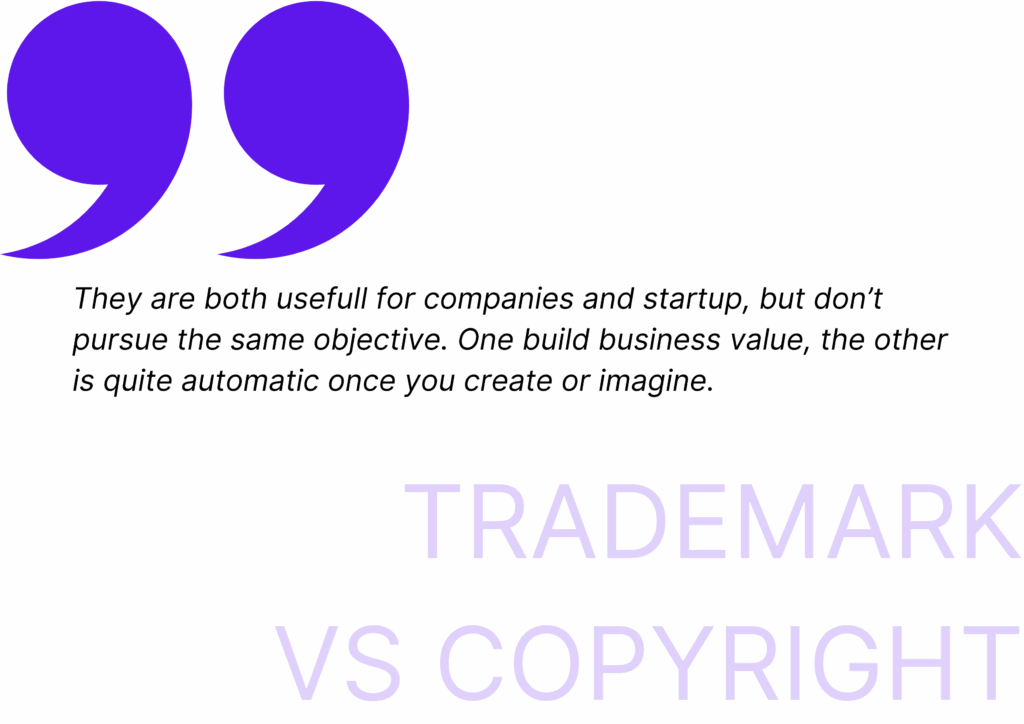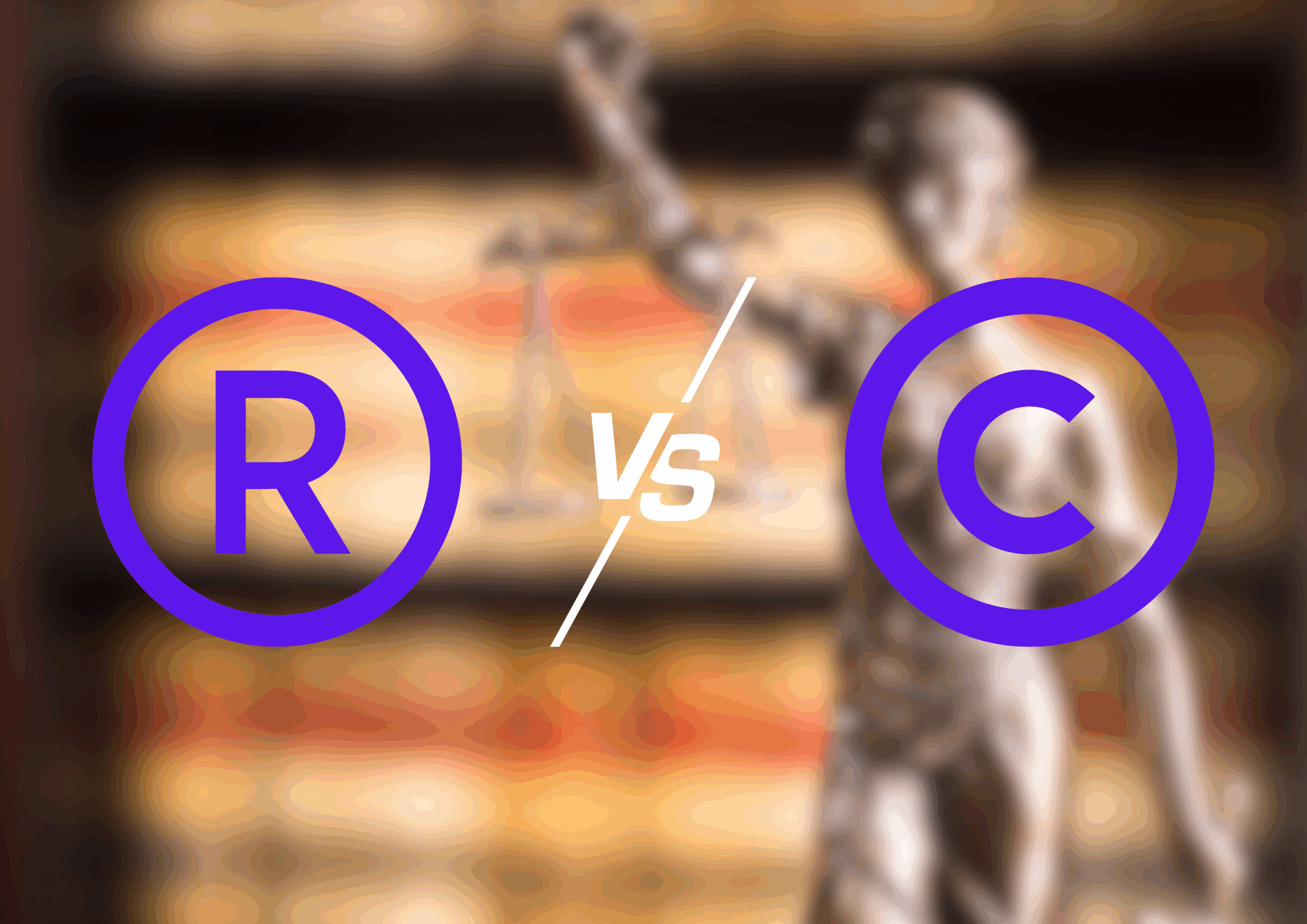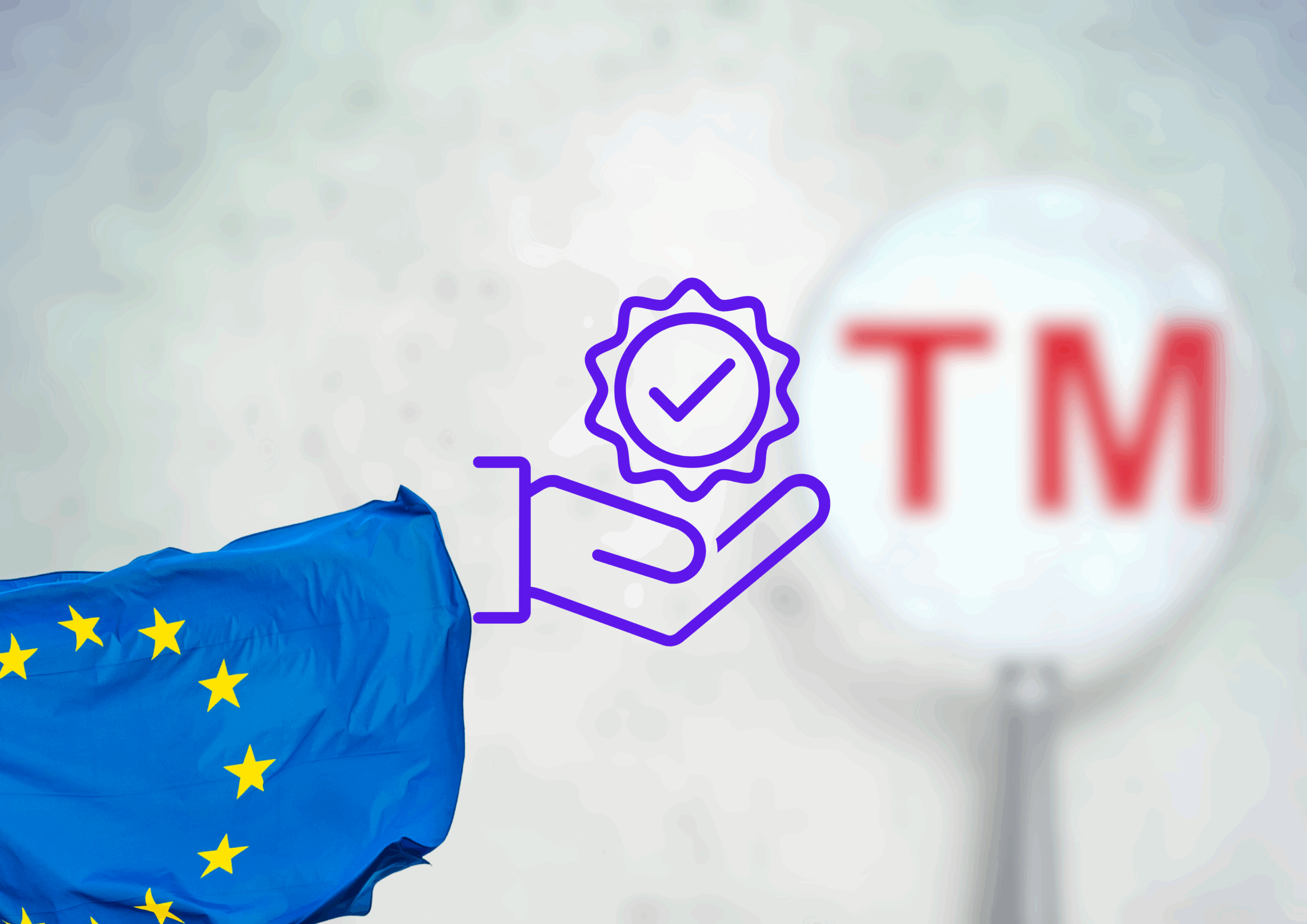Why the debate between trademark vs copyright matters for startups
Most founders underestimate intellectual property until it’s too late. You launch a product, invest in branding, start marketing… and suddenly a competitor pops up with a suspiciously similar name, or someone copies your blog posts word-for-word. Without the right protection in place, your hands might be tied.
The “trademark vs copyright” question matters because each serves a different purpose. A trademark is about protecting identity. Copyright is about protecting creativity. Both are valuable, but they’re not interchangeable. If you rely on the wrong one, you leave parts of your business exposed.
For startups operating in crowded markets, brand recognition is everything. The name that sticks in people’s minds, the logo they recognize on an app store, the tagline they remember after scrolling—these are your assets. At the same time, your content, your designs, your product documentation, and your code represent countless hours of work and creativity. Protecting both sides is essential.
What is a trademark?
A trademark is a legal signifier of your brand identity. It’s what distinguishes your goods or services from everyone else’s. A trademark can be a word, a logo, a slogan, a sound, or even a color scheme in some cases. Think of “Google” as a word mark, the Nike swoosh as a symbol, or McDonald’s “I’m lovin’ it” as a slogan.
The power of a trademark is that it gives you exclusive rights to use that identity in your sector. It ensures that when customers see your mark, they know it’s you. In crowded startup categories—think SaaS platforms, mobile apps, or consumer marketplaces—this recognition can make or break you.
Trademarks also go beyond marketing. They become business assets. A registered trademark can appear on your balance sheet, increasing the valuation of your company. Investors, acquirers, and partners take IP protection seriously. If your brand is secured, it signals professionalism and lowers future legal risks.
What is a copyright?
Copyright, by contrast, is about protecting creative expression. It covers original works such as texts, articles, photos, music, software code, videos, or designs. As soon as you create an original work, you automatically hold copyright in most jurisdictions. That means nobody can legally reproduce, distribute, or adapt your work without your permission.
For startups, this applies everywhere: your blog posts, your UX designs, your pitch deck, your product explainer video, your marketing campaigns, even your source code. Copyright ensures that your work can’t simply be copied and monetized by others.
While trademarks protect your business identity, copyright protects the substance of what you create. That distinction is key.
Trademark vs copyright: the startup perspective
The difference between the two protections becomes clear when you imagine common startup scenarios. Suppose you’re launching a SaaS tool called DataFlow. Registering a trademark ensures that no competitor can launch a similar service under the same or confusingly similar name. The logo you designed to represent DataFlow is also protected as a trademark once registered.
Now imagine your marketing team writes articles, creates UI illustrations, and produces onboarding videos. All of this work is automatically protected under copyright. Competitors can’t legally copy your blog posts or reuse your visuals without your permission.
In other words, trademarks protect how you’re recognized in the market. Copyright protects the original works that give your startup life and visibility.
When startups need a trademark
For a startup, a trademark becomes crucial when you want to:
First, protect your brand identity. The name of your company or product is one of your most valuable assets. If someone else can use a similar one, you risk losing customers, credibility, and even the ability to scale internationally.
Second, prevent market confusion. A registered trademark gives you the right to stop others from using signs that could mislead customers into thinking they’re dealing with you. This is especially important in online markets where users might stumble across competitors through search or app stores.
Third, build long-term business value. A trademark isn’t just a shield—it’s an asset. It can be licensed, sold, or valued during fundraising. For startups that dream of acquisition, trademarks often weigh heavily in due diligence.
To put it simply: if you’re serious about your brand, a trademark is not optional.
When startups need copyright
Copyright comes into play every day for startups, often without founders realizing it. Every piece of content your team creates—whether it’s written, visual, or digital—is automatically protected. But why does this matter in practice?
Because content is currency. In the digital age, startups rely on articles, guides, videos, and designs to attract attention and build trust. If competitors freely copy these assets, your differentiation vanishes. Copyright prevents this.
There’s also the matter of product development. Software startups, for example, rely on code as their core intellectual property. Copyright ensures that code is legally recognized as belonging to you, giving you grounds to take action if someone tries to replicate it.
While you don’t need to register copyright in most jurisdictions, doing so can strengthen your position in disputes. In countries like the US, registration makes it easier to sue for damages and prove authorship. For startups creating large amounts of content or software, that extra layer of protection can be worth it.

The legal value of trademark vs copyright for business protection
When you compare trademark vs copyright, the real takeaway is that both bring legal value, but in different ways.
Trademarks help you build a recognizable and defensible identity. They stop competitors from diluting your brand and ensure customers associate your mark with your product alone. Over time, trademarks grow in value, becoming part of the intangible assets that increase company valuation.
Copyright, meanwhile, safeguards your creative capital. It proves originality, protects your intellectual output, and ensures that your team’s efforts are not misused. It won’t keep competitors from using a similar name, but it will prevent them from stealing your code or duplicating your marketing campaigns.
The best strategy is usually complementary. For most startups, a combination of trademark registration and copyright awareness ensures both the brand and the creative output are protected.
Common misconceptions about trademark vs copyright
Founders often make mistakes by confusing the two protections. One of the most common misconceptions is thinking copyright protects a company name. It doesn’t. Only a trademark does that. Another mistake is assuming a trademark will stop others from copying blog content or code. It won’t.
There’s also the myth that both are optional luxuries for later stages. In reality, delaying protection can be expensive. Imagine spending years building a brand, only to find out you can’t trademark it because someone else registered it first. Or worse, being forced into a costly rebrand mid-growth.
Understanding these misconceptions early saves time, money, and legal headaches.
How to register a trademark
Registering a trademark requires some effort, but the process is relatively straightforward. You typically start by conducting a search to make sure your mark isn’t already taken. This avoids conflicts that could block your registration. Then you file an application with the relevant authority—such as the USPTO in the US, EUIPO in Europe, or WIPO for international coverage.
The application is examined by officials who check compliance and potential conflicts. If approved, the mark is published for opposition, giving third parties the chance to challenge it. If no opposition is filed, the trademark is registered.
The cost varies depending on the country and the number of categories you register in. For a startup, expect anywhere from €200 to over €1000. While it’s an investment, it’s one that pays dividends in long-term brand security.
How to register a copyright
Copyright is automatic upon creation in most countries. As soon as you write an article, shoot a video, or code a feature, you hold the copyright. That said, you can strengthen protection through formal registration or by depositing the work with a notary or specialized platform.
In the US, registering your copyright with the Library of Congress provides official proof of ownership and allows you to claim statutory damages in case of infringement. For startups that produce lots of content or rely heavily on digital assets, this step is often worthwhile.
The process is usually quick and affordable compared to trademarks, making it a practical way to add extra security.
Building an IP strategy as a startup
The smartest approach is not to choose between trademark vs copyright, but to integrate both into your startup’s growth strategy. Early on, identify your core brand assets and secure them with trademarks. At the same time, implement a system to manage and document all copyrighted works your team produces.
As you scale, review your IP portfolio regularly. Expanding into new markets may require filing trademarks in additional jurisdictions. Launching new product lines may call for new applications. And as your content output grows, having clear copyright ownership agreements with employees and freelancers becomes essential.
Investors often look at IP protection as a sign of maturity. A startup that has secured its trademarks and managed its copyrights appears more professional, more valuable, and less risky.
At the end of the day, trademark vs copyright isn’t really an either-or question. They serve different, complementary purposes. A trademark protects your brand identity, giving you exclusive rights over your name, logo, or slogan. Copyright protects your creative output, ensuring your content, code, and designs can’t be legally copied.
For startups, using both is the safest and smartest route. Trademarks secure the market recognition you need to grow. Copyright protects the creative assets that fuel your growth. Together, they form the foundation of a strong intellectual property strategy—one that not only keeps competitors at bay, but also adds tangible value to your company.
When building your startup, you wouldn’t leave your servers unsecured. Don’t leave your intellectual property exposed either. Protect it, invest in it, and let it become one of the assets that pushes your business forward.
Do I need both a trademark and copyright?
Yes, if you want to protect both your brand identity and your creative output.
What’s the difference between ™ and ®?
™ can be used without registration. ® means the mark is officially registered.
Is registration mandatory?
For trademarks, yes. For copyrights, no (but it’s recommended in some cases).
Does protection apply worldwide?
No. Trademark protection is territorial. Copyright is broadly international thanks to treaties (e.g., Berne Convention), but enforcement varies.
How much does it cost?
Trademarks vary depending on classes/territories. Copyright is free unless you opt for formal registration or deposit.





